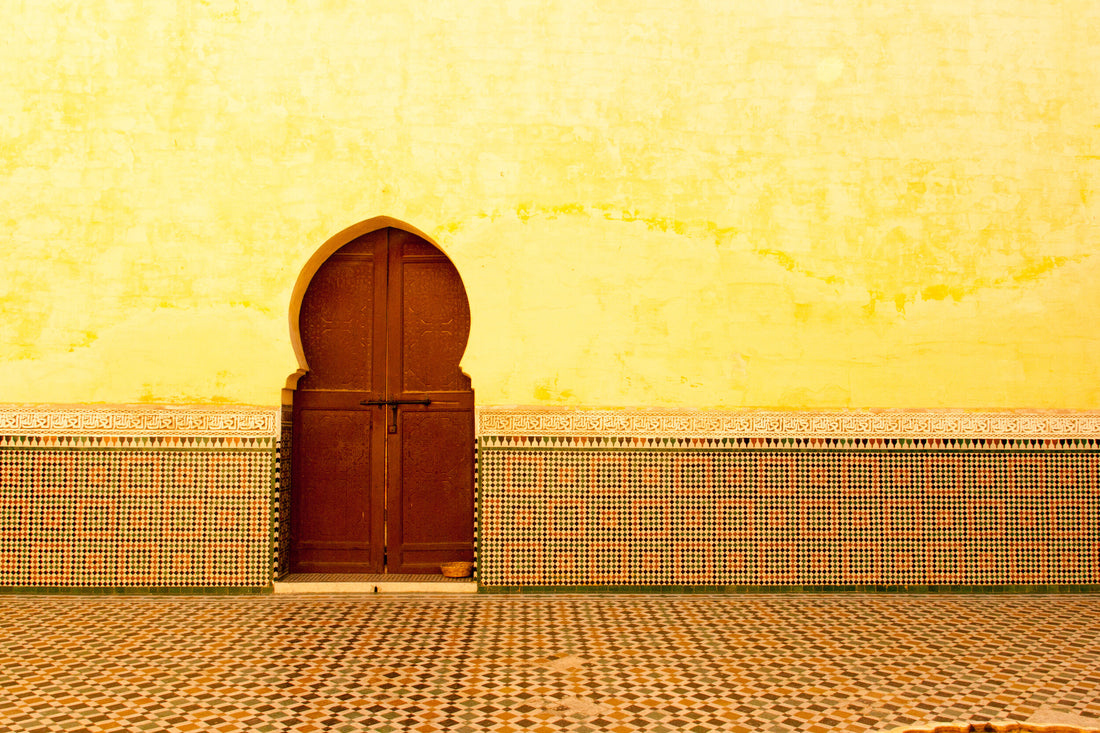When trying to become closer to Allah azza wa jal, we sometimes use our own internal feelings and states as an indication of progress. For example, if during a salah one feels a sense of expansion in the chest or some kind of positive internal experience, one might think that this indicates they have made progress on the path to Allah. These pleasant inner states that are experienced with various acts of obedience are indeed blessings from Allah to be grateful for (and not to become arrogant on account of). However, they are not necessarily indicators of spiritual progress. Conversely, others may feel that because they are not having these pleasant internal states during their prayers or their other acts of worship, that they are not making progress and are not close to Allah. This, too, is often a deception.
Take a look at what Hakim al-Ummah, Mawlana Ashraf Ali Thanwi writes in his book, Qasd us-Sabil: The Straight Path Simplified. Here, he is introducing the ideas of “volitional verses non-volitional” matters. Volitional meaning, “that which you have control over”, and non-volitional meaning, “that which you do not have control over.”
The salik [the Muslim seriously seeking to become closer to Allah] should never neglect volitional matters - meaning matters that are within one’s control. In addition, he should not be concerned with non-volitional matters - matters that are outside of one’s control. Even if the nonvolitional matters are pleasant, he should not yearn to acquire them. And if they are unpleasant, he should not occupy himself with trying to ward them off. For Example, concentration in salat, dhikr, or recitation of Quran may be difficult, but it is still within one’s ability to acquire. There are several ways of developing this concentration, such as contemplating on the omnipotence of Allah Ta’ala, reflecting on the meanings of the words, or focusing on each word to the extent that every word is being consciously pronounced. Since these actions are within man’s ability, he should not neglect their acquisition. Rather, he should exercise diligence in this regard.
On the other hand, the arising of different feelings such as enjoyment, displeasure, distaste, satisfaction, etc. are not within one’s volition. Therefore, the salik should not be concerned if he does not experience enjoyment in salat, dhikr, or recitation of the Quran. Nor should he become despondent or frustrated by this lack of enjoyment.
Obedience to Allah Ta’ala [is] within one’s volition. Therefore, the salik must not be neglectful or lacking in this regard.
The following matters are beyond one’s ability to volitionally acquire: pleasant dreams, answering of duas, spiritual ecstasy, bad dreams, despondency, reduction in rizq (sustenance), ecstasy in dhikr, seeing visions, illness, etc. The presence or absence of these conditions and states should not concern the salik.
The one who preoccupies himself with matters that are beyond his control, whether it be their acquisition or their removal, will waste his entire life. Often, he [will become] overwhelmed by frustration, depression, and despondency. [He may consider] himself to be cursed, and as a result commit suicide. Others will react by abandoning dhikr and obedience. In short, by engrossing oneself in matters that are outside of one’s volitional control, the salik endangers both his Iman and his life.
Sometimes, after a non-volitional but enjoyable state comes upon a salik, he becomes vain an believes himself to be a man of excellence and perfection. Thus, the salik is subjected to a fitnah (test). He becomes caught up in conceit and self-aggrandizement, causing him to be spiritually destroyed.
On the other hand, by not experiencing these enjoyable states, the salik considers himself to be unworthy and contemptible. Thus, true humility is instilled in him.
Sometimes an unpleasant state will actually be beneficial for the salik, since he is bound to strive against evil inclinations. He strives, suffers, and experiences grief, and this in turn purifies his heart. It is in reference to these matters that the Holy Quran states:
"Perhaps you detest something while it is actually good for you; and perhaps you love something while it is actually bad for you." (Baqara 2:216)
If you experience an enjoyable condition, then think of it as a ni’mat (bounty) and be grateful to Allah Ta’ala. Similarly, consider it a ni’mat and thank Allah Ta’ala if you do not acquire them.
From this we can see that while positive internal states are a blessing, negative internal states can also be a blessing. But in both cases, they are non-volitional, and so we should not be too concerned about them. We do not have any control over whether we experience them or not, anyway. The real indicator of spiritual progress is the extent to which one follows the shari’a and the sunnah. If one is praying five times a day, on time, with regularity, is avoiding the haram, and is doing their best, they are making progress. One must look at what one has the ability to control. If one is doing their best in that realm, then they are progressing.

